Reading proficiency Phonics Worksheets for Ages 4-9
7 filtered results
-
From - To
Enhance your child's reading skills with our engaging Phonics Worksheets designed for ages 4-9! Tailored to promote reading proficiency, these worksheets incorporate fun activities that focus on letter sounds, word recognition, and blending techniques. Our easy-to-follow format encourages young learners to explore phonics in a playful manner while building their confidence in reading. With colorful illustrations and interactive exercises, children will enjoy the learning process as they develop essential literacy skills. Whether at home or in the classroom, our resources provide the perfect foundation for effective reading. Empower your little ones today with our dedicated phonics worksheets!
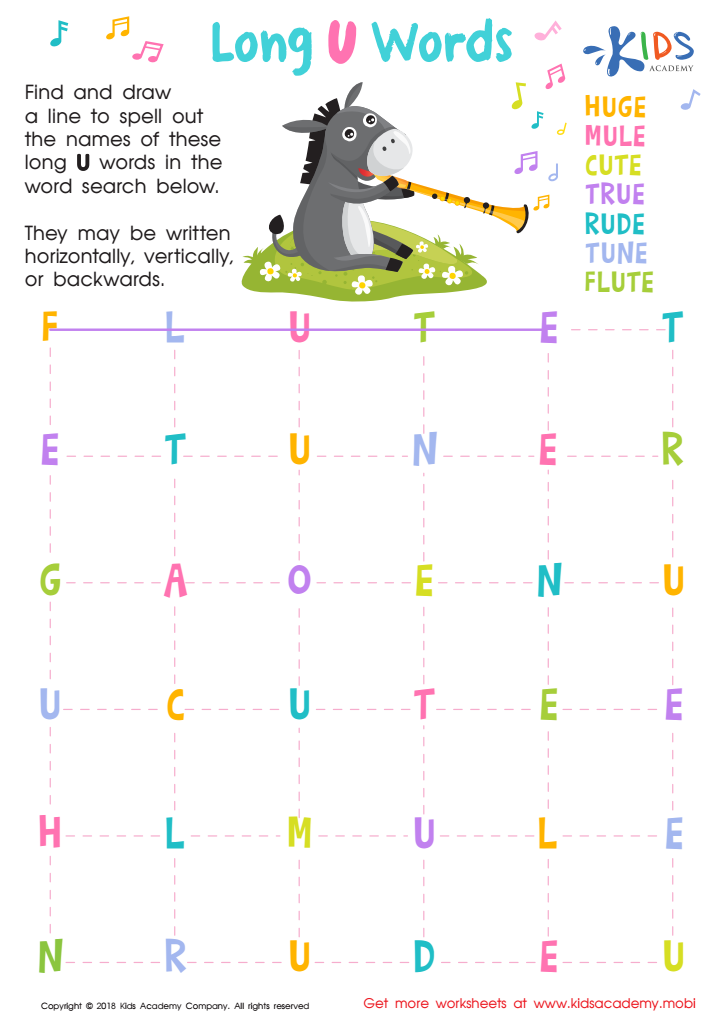

Long /u/ Words Worksheet
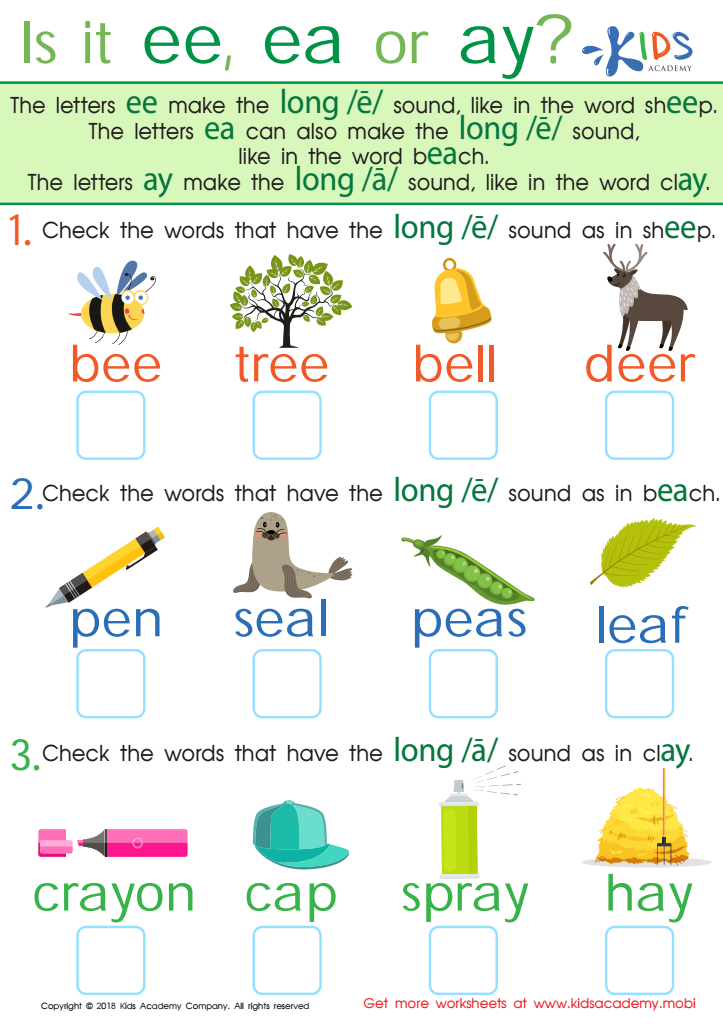

Is It EE, EA, or AY? Worksheet
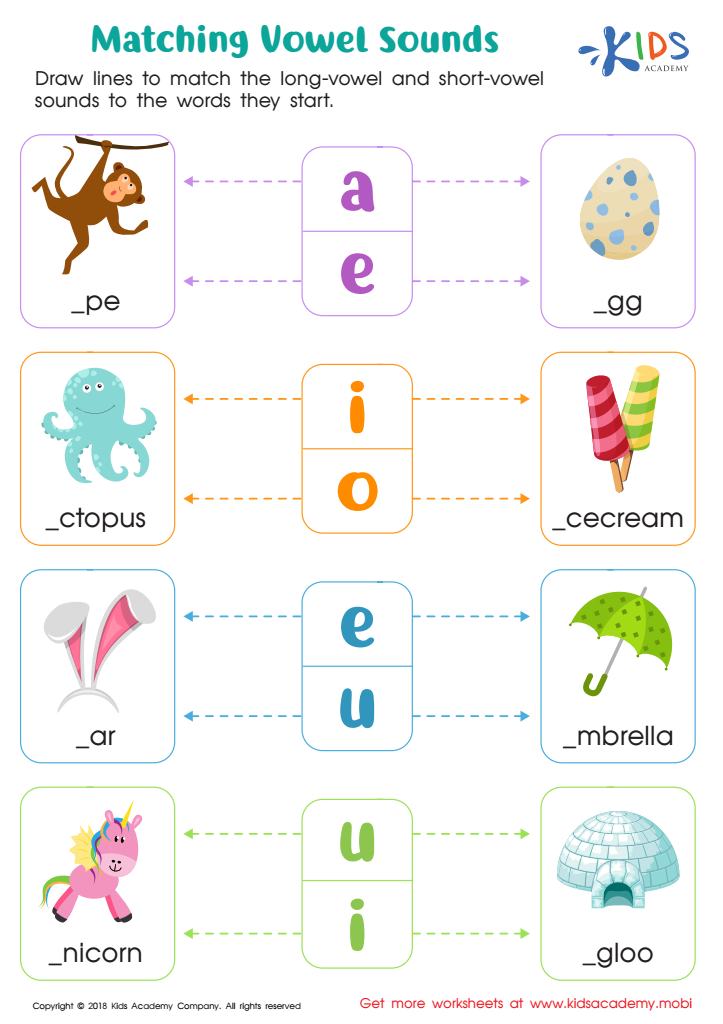

Matching Vowel Sounds Worksheet


Long and Short U Worksheet
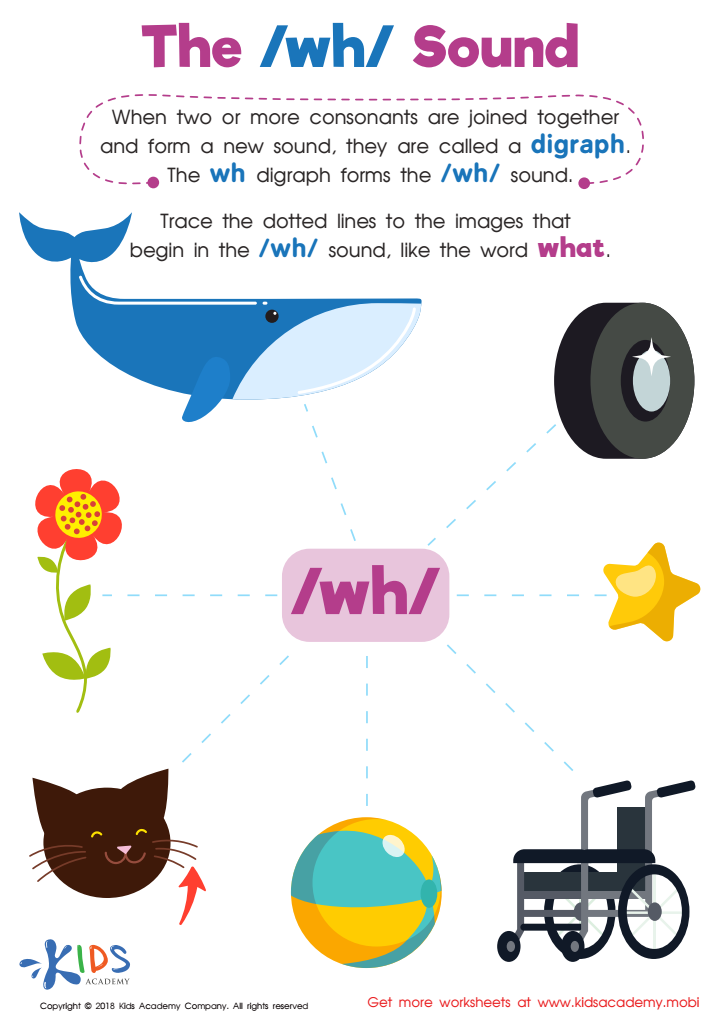

The /wh/ Sound Worksheet
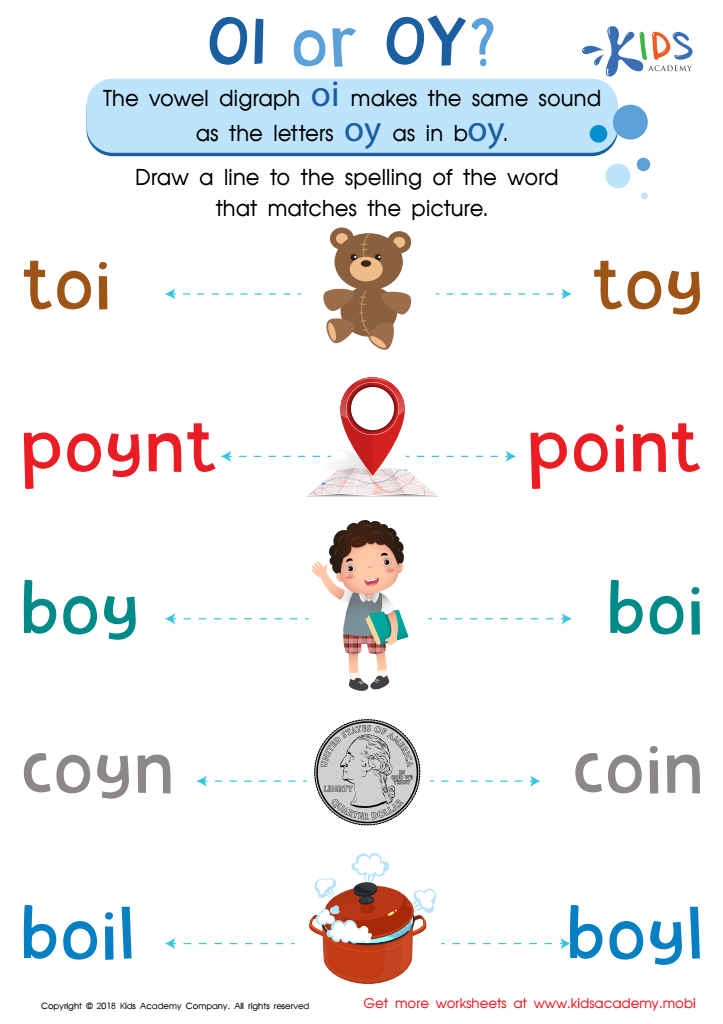

Reading: OI and OY Worksheet
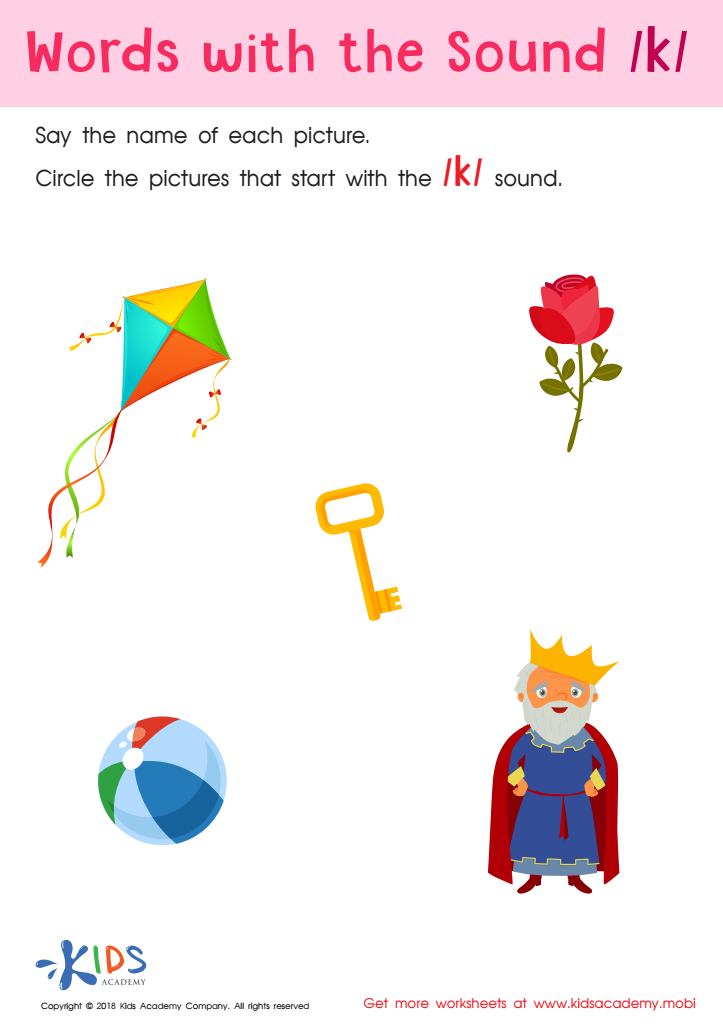

Words with sound k Reading Worksheet
Reading proficiency, particularly through phonics, is essential for children aged 4 to 9 as it serves as the foundation for lifelong learning and success. Phonics teaches children the relationships between letters and sounds, enabling them to decode words independently. This skill is crucial during these developmental years when children are making significant strides in language acquisition.
Parents and teachers should care about phonics because it enhances vocabulary development, improves comprehension, and fosters confidence in reading. Early proficiency in reading reduces the likelihood of academic struggles later on. When children can read well, they are more engaged in classroom activities, allowing for more meaningful participation and interaction.
Moreover, proficient reading opens doors to a wealth of knowledge and creative thinking, positively impacting a child's self-esteem and motivation for learning. It is also important to note that early investment in reading skills can lead to better outcomes in other subjects, as reading is integral to understanding math, science, and social studies.
Ultimately, supporting phonics and reading proficiency helps cultivate a lifelong love for reading, paving the way for future achievements and enriching both personal and academic experiences. Investing in early literacy is investing in a child's future.
 Assign to My Students
Assign to My Students



















